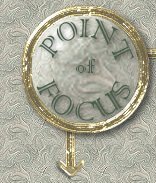

In spite of animal activist protests and the surfacing of moral
issues which may preclude the introduction of Xenografts into our database of
medical resources, the research on Xenografts continues. Somewhere in time it
will surface with the majority of the public being unaware that this was even
an option. Perhaps too, the majority will not care. As I write this I learned
that a Xenograft transplant program existed in Pittsburgh, PA. That is almost
in my own backyard and I was stunned. I was not aware that this program existed
and thus I imagine that there are many programs within medical facilities dedicated
to researching and promoting Xenografts.
Xenograft
transplants involve transplanting organs between species- animal to human. The
pig is generally the animal who is thought to be the most suited for this honor
as it's organs and cells are closely related to human ones. At least that is
what is said.
The idea of Xenograft transplantation brings up many issues, ethical
and practical. For instance the spread of disease from specie to specie is a
practical issue that is a possibility that arises with this type of transplantation.
The ethical issues seem obvious the most prominent being the raising and destruction
of so many animals to enable the need for so many transplants to be met. However,
the same scientists who claim that animals are not at all like people and therefore
can be used in research and in transplantation, also claim that these animals
have organs very close to that of humans. The contradiction here seems obvious.
Then there are the issues of life and death themselves. These
issues will bring up different ideas for different people but here is some food
for thought.
Life: We are given a lifespan. Whether you believe it is predetermined
by a higher power or we have evolved from a minute germ and merely continue
to evolve is a personal issue. The fact remains that life is finite and perhaps,
in reality, there is a good reason. Life has a span and that gives us a parameter,
a deadline if you would, in which to accomplish our goals. Life is precious
because it does not go on forever.
Death: We reach a time when life ends. Usually through disease,
infirmity and/or old age. Whether your beliefs are spiritual or pragmatic in
nature death is really of practical value. There is only so much space, air,
food and water and although there are bountiful resources they are not boundless.
At this time people live well into their 80's and it is probably in the last
20 years or so, with medical research being so progressive, we have seen our
lifespans increase dramatically. However, we have hospitals, nursing homes,
and additional types of housing overflowing with the old and infirm who are
unable to care for themselves.
Infinity: The prospect of Xenografts brings to mind an infinite
lifespan. The ability to transplant all major organs that are diseased and failing;
would this lead to living forever? How far will we go? How far can we go? How
much can we increase the lifespan of the population and still maintain a world
where there are resources to keep us alive. Would it be the paradox that occurs
with Xenografts? We could maintain a body forever however, we'd not have a space
for it to live in, food for it to eat nor clean air for it to breath.
Animals: Life, has many different forms. Animals are one of them.
Animals are loved by us. We share our homes with them, our food, our water,
we love them like they are our children and then we kill them because we believe
that our lives are far more precious than theirs. We never ask the question
who gave us the right, we just accept that we are mightier and we are in control.
Xenografts take our treatment of animals to the next level, and perhaps push
us to a level whose implications we are unaware of, blinded by our need to live
forever.
Implications: When Xenografts become commonplace and we have our
life expectancy broadened and our population increasing and the need for space
and zero population growth is here what will we do to contain this growth? Will
the birth control police taint our waters with drugs to prevent pregnancy? Will
the birth control police need to cull our infant population? How will they decide?
The child born with an anomaly, or perhaps just the Blondes will go. Sound extreme?
It was not that long ago that Xenografting was the thing science fiction novels
were written about.
Objectivity: How can any human make an objective decision about
Xenografts or any other animal research? It is a difficult task at best. After
being in the medical field for some 25 years I have found that no matter how
much pain, how much disease, or how many handicaps a person has, their desire
to live is extremely strong. It is difficult to think of not sacrificing an
animals life when confronted with your own death. I hope that for me, I could
say no but because it is a decision that no one in that position can make clearly
it needs not to be a decision anyone should have to make. Xenograft transplantation
research should be discontinued, placed in the trash and forgotten. The idea
of killing one life to save another should never be allowed to materialize.
Saving a life will be meaningless, when that life, has lost it's soul.
|








